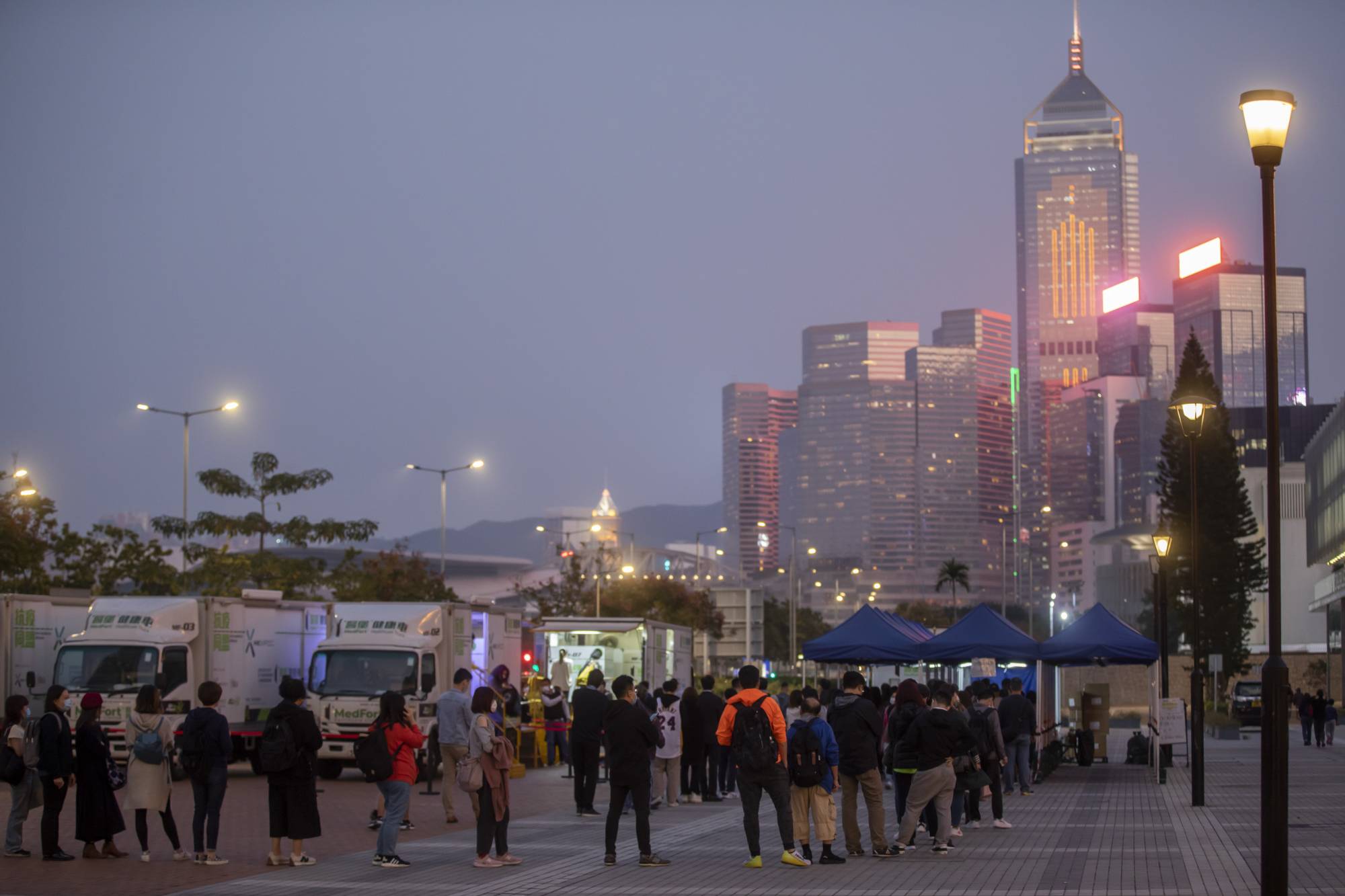Hong Kong’s economic performance in the fourth quarter may provide little consolation as the city struggles to bring the omicron wave under control, putting pressure on the government to dole out more stimulus for hard-hit sectors like retail.
Government data Friday likely will show gross domestic product expanded 5% last quarter from a year earlier, according to the median estimate in a Bloomberg survey of 12 economists. Full-year growth is seen at 6.6%, the first annual expansion after two straight years of contraction.
Heading into this year, a raft of virus measures have worsened the outlook for an economy that had been poised to return to pre-pandemic levels of activity. Recent moves include a ban on dining in restaurants — now extended until Feb. 17 — travel restrictions and the culling of thousands of pets. A delayed reopening with China was a key driver behind economist downgrades for the city’s growth outlook, given its reliance on tourists from the mainland.


















With your current subscription plan you can comment on stories. However, before writing your first comment, please create a display name in the Profile section of your subscriber account page.